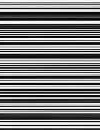Urban computing and locative media
It builds on available sociological approaches to understanding everyday life in the networked city to show that emergent technologies reshape our experiences of spatiality, temporality and embodiment.
“Following urban computing and locative media and their accompanying visions from labs, conferences and classrooms to journal publications and popular media accounts, this dissertation presents four case histories in corporate, academic and artistic design practice. An analysis of the Mobile Bristol, Passing Glances, Sonic City and Urban Tapestries research and design projects draws out the idea that everyday life in the future city is expected to become more expressive, engaging and meaningful. The increased extensibility and transmissibility of the city itself, along with an increased ability to be socially embedded within it, is seen to be a fundamental promise inherent in these projects. The dissertation argues that such spatial and cultural potentialities can be productively understood as involving temporary, selective and mobile publics, where creative and playful interactions emerge as primary means of social innovation.”
(via Small Surfaces)




